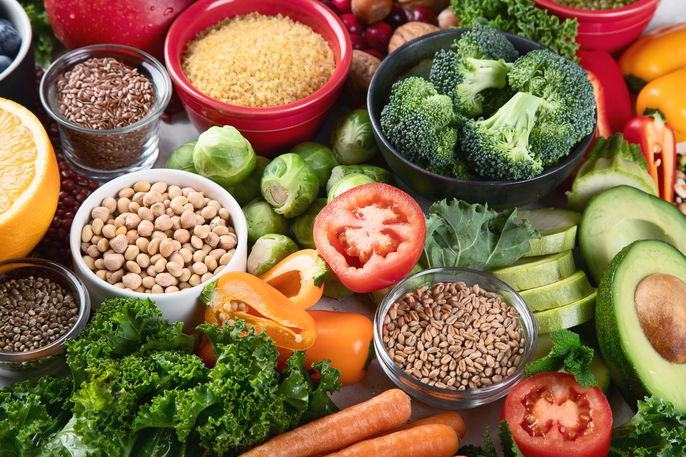A hemorrhoid diet is aimed at preventing hemorrhoids and helping with treatment through consumption of fiber-rich foods. Food that should be consumed with a hemorrhoid diet includes fruit, greens and whole grains, as these are great fiber sources that promote natural intestinal flow and make bowel movements easier.
It is also important to ensure adequate water intake, as fluids help to soften the stools and reduce straining with bowel movements. Less straining can decrease bleeding and discomfort associated with hemorrhoids.
In addition, you can also incorporate teas like rosemary tea and chamomile tea, which have anti-inflammatory and analgesic action that help to reduce pain, discomfort and burning from hemorrhoids.

What to avoid eating
Food that you should avoid when you have hemorrhoids include:
- Food and drinks with caffeine, like coffee, green tea, yerba mate, chocolate and cola soda
- High-fat foods, like pizza, ice cream, hot dogs, hamburgers, French fries and fast food
- High-fat dairy, like whole milk, whole fat yogurt and yellow cheese
- Low-fiber foods, like white bread, tapioca, white rice and white pasta
- High-fat protein, like red meat, lamb, pork and duck
You are also advise to avoid alcohol, pepper and other spicy condiments. These can irritate the intestines and worsen hemorrhoid symptoms.
What to eat
Some foods that are indicated for hemorrhoids include:
- Whole grains, like whole wheat rice, whole wheat pasta, whole wheat bread, oats, amaranth and quinoa
- Seeds, like pumpkin seeds, chia seeds, flaxseeds and sesame seeds
- Fruits (with the peel when possible), like watermelon, oranges, kiwi, mango, tangerine and papaya
- Vegetables, like lettuce, tomato, arugula, watercress, kale, and squash
- Nuts, like peanuts, walnuts, almonds and chestnuts
- Lean protein, like chicken, fish, eggs, turkey and tofu
- Low-fat dairy, like skim milk, white cheese and skim yogurt
You should prioritize raw fruits and vegetables, as their raw forms contain more fiber.
It is also important to eat high-fiber foods at all meals of the day, like whole grain bread for breakfast, vegetables for lunch and dinner, and fruit for snacks and dessert.
Can you eat eggs with hemorrhoids?
People with hemorrhoids can eat eggs, as there is no relation between consuming eggs and worsening of hemorrhoids. Learn more about what causes hemorrhoids and what to do.
3-day meal plan for hemorrhoids
The following table outlines a sample meal plan that is appropriate for preventing and treating hemorrhoids:
This meal plan is just an example of what you should include in your hemorrhoid diet. Choices can vary depending on your health status, weight and activity level. To ensure a more adequate meal plan for you, you should consult a registered dietitian, who will formulate a meal plan based on your preferences and health needs.
Other tips for getting rid of hemorrhoids
Other tips that can help to relieve hemorrhoids include:
- Drink plenty of water and tea, to boost intestinal functioning
- Use home remedies, like rosemary tea or chamomile sitz baths to help reduce hemorrhoid inflammation. See other sitz baths for hemorrhoids that you can prepare at home.
- Be sure to chew your food slowly and thoroughly, as this helps to breakdown fiber for digestion and makes bowel movements easier
- Use dietary fibers, like psyllium, which help to reduce bleeding and hemorrhoid recurrence
- Consume probiotic foods, like yogurt, kefir and kombucha to help regulate intestinal flora and prevent constipation
In some cases, you are also advised to perform light, low-impact exercise, like walking and swimming. These exercises can help to strengthen pelvic floor muscles which can prevent constipation and relieve hemorrhoids. Learn about other hemorrhoid treatments that can help to prevent worsening.






























